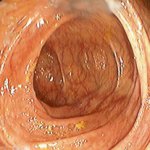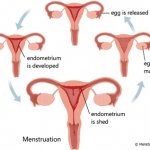How Long Does It Take To Ovulate
All the ladies who engage themselves in casual sex must have found themselves asking this one question often ‘How long does it take to ovulate?’ Well unless you have a special app in your adroid or iphone which keeps track of your menstrual cycle, allow us to elaborate in full details what is ovulation and how does it take place and most importantly, how long does it take to ovulate.
Before finding out how long does it take to ovulate, we all should know is what exactly ovulation is. If you don’t then here is a detailed and well versed explanation that ovulation is production of a special egg in your ovary. It is produced in a follicle, one in number and very mature. It is produced and released on the 14th day of your menstrual cycle takes place after every 28 days. When this egg is released it is like a time bomb. It has a time span of 12-48 hours during which, it can amalgamate with sperm and cause pregnancy. Once its time starts to run out it starts to disintegrate until it occurs no more. This process is called ovulation and you are more susceptible to get pregnant during ovulation than any other time of the month.
Now moving on to how long does it take to ovulate; the general answer is that you start to ovulate about 14 days after the last day of your menstrual cycle. The exact time for every individual is determined by the individual luteal phase. Luteal phase is yet another time period in the women’s calendar which lasts for about 12-16 days and determines that how long does it take to ovulate for you. Once you find out the length of your luteal phase, subtract the number of the days from the time period between your two menstrual cycles. To make it simple, let us consider that a person has a luteal phase which lasts 12 days and the time period between two cycles is 28 days, then 28-12 gives us 16. This means that this is how long does it take to ovulate for that person!
During the days of ovulation you can feel your body responding to that state in some uncomfortable ways. There might be discomfort in your abdominal parts accompanied by raise in level of temperature of the body. Your cervical mucus will also undergo a change of state. From being thick and cloudy before ovulation, it will change into slippery and clear liquid and this will indicate the ovulation period.
Another change your body will undergo is the rise in the production and release of Luteinizing Hormones 2-3 days prior to your ovulation period. The extensive release of this hormone makes it easier for the eggs to escape the fallopian tube making it ready to be fertilized! The egg when not fertilized is disintegrated and is expelled from the body along with other uterus lining in your next menstrual cycle. When it does get fertilized, it attaches itself along the uterus linings and results in pregnancy.






